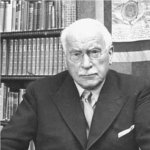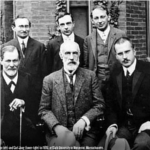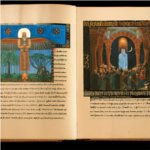Carl Jung was born Karl Gustav II Jung in a place called Kesswil, in the Swiss canton of Thurgau, on 26 July 1875. He was born the fourth but the only surviving child of Paul Achilles Jung and Emilie Preiswerk. A solitary and introverted child, Jung was convinced from childhood that, like his mother,[9] he had two personalities — a modern Swiss citizen and a personality more at home in the eighteenth century. A number of childhood memories had made a lifelong impression on him. As a boy he carved a tiny mannequin into the end of the wooden ruler from his pencil case and placed it inside the case. He then added a stone which he had painted into upper and lower halves and hid the case in the attic. Periodically he would come back to the mannequin, often bringing tiny sheets of paper with messages inscribed on them in his own secret language.
At the age of twelve, he was pushed to the ground by another boy so hard that he was for a moment unconscious. A thought then came to him that "now you won't have to go to school any more." From then on, whenever he started off to school or began homework, he fainted. He remained at home for the next six months until he overheard his father speaking worriedly to a visitor of his future ability to support himself, as they suspected he had epilepsy. With little money in the family, this brought the boy to reality and he realized the need for academic excellence. He immediately went into his father's study and began poring over Latin grammar. He fainted three more times, but eventually he overcame the urge and did not faint again. This event, Jung later recalled, "was when I learned what a neurosis is."





